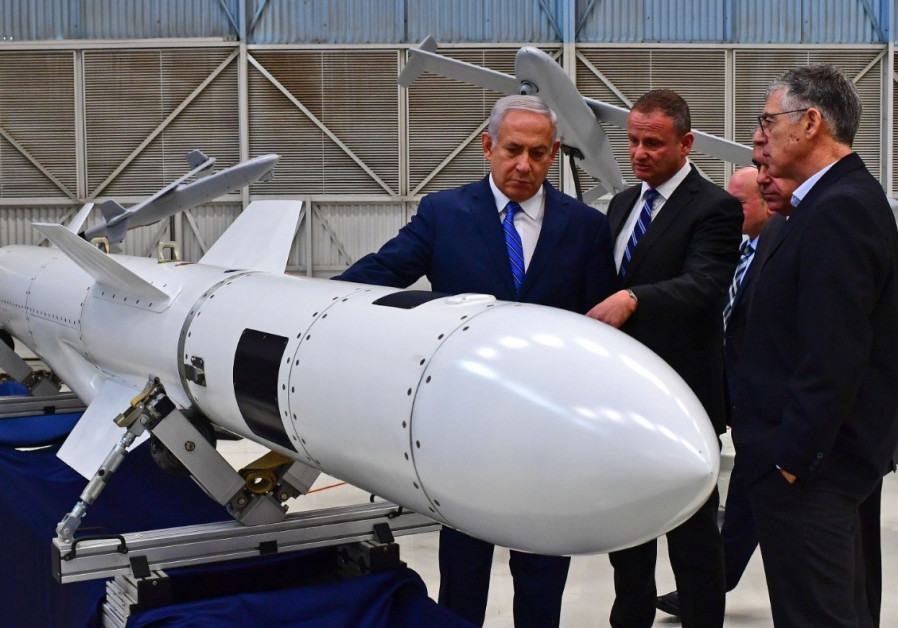Israel allegedly struck an Iranian missile factory in Syria’s Masyaf on Saturday.
Anna Ahronheim
Israel’s Air Force reportedly used the supersonic Rampage stand-off air-to-surface missiles for the first time during a strike on Iranian positions in Syria last week, foreign media has reported.
Israel allegedly struck a possible Iranian surface-to-surface missile factory in a Syrian base in the country’s Masyaf on Saturday and satellite images released by Israeli intelligence firm ImageSat Intl. (ISI) showed the complete destruction of the factory.
“The main industrial structures were completely destroyed, including the main hangar and the adjacent three production hangers and buildings. The rest of the structures were affected and damaged by the blast,” ISI said, adding that they “assess that all the elements and/or equipment which were inside are completely destroyed as well.”
According to Syria’s SANA news agency, Israeli jets fired the missiles from Lebanese airspace at about 2:30 a.m. Saturday.
The factory, ISI said, is located in the vicinity of other facilities likely linked to Iran’s SSM project in Syria, which have previously been struck in alleged Israeli strikes carried out over the past two years.
Dubbed “The Rampage” after a popular video-game, the missile is a supersonic, long range accurate air-to-ground assault missile with a warhead, rocket engine and advanced navigation suit which allows for precision targeting.
Amit Haimovich, director of marketing and business development for IAI’s MALAM engineering unit told The Jerusalem Post in June that due to the combination of the Rampage’s speed and physical form factor “it can be detected but it is very hard to intercept.”
“If you take the Middle East arena and areas protected by air defense systems, the whole point of this missile is that it can targets within standoff ranges” without threatening the launching platform, he said.
The missile can be fitted to the Israel Air Force’s F-15, F-16 and F-35 fighter jets and is meant to be dropped outside areas protected by air-defense systems.The 4.7 meter long missile which weighs 570 kg is guided by a GPS system giving it the ability to be operated in any weather conditions as well as during both in the day and at night.
The targets that best fit the capabilities of the missile include communication and command centers, air force bases, maintenance centers, infrastructures and valuable field targets protected by anti-aircraft batteries.
The Rampage also features a warhead which was designed for optimal penetration capabilities, allowing for the destruction of targets inside bunkers.
The factory allegedly struck by Israel is also in the vicinity of Russian-made S-300 missile defense systems which were deployed to Syria by Moscow. Satellite images released by ISI have showed three out of the four systems erected in Masyaf, with one launcher covered by a camouflage net.
While the systems are still believed to be in the hands of the Russians and not manned by the Syrian military, the advanced S-300 is a major upgrade to the Syrian air defenses and would pose a threat to Israeli jets on missions as the long-range missile defense system can track objects such as aircraft and ballistic missiles over a range of 300 kilometers.
Content retrieved from: https://www.jpost.com/Middle-East/Did-Israel-use-the-supersonic-Rampage-to-strike-Iranian-targets-in-Syria-587279?fbclid=IwAR0MTge3Tm62gjsatVEy_1VsC0MArmlWhlmq1V03WsEC55o5GJJKYpH9Wgk.
